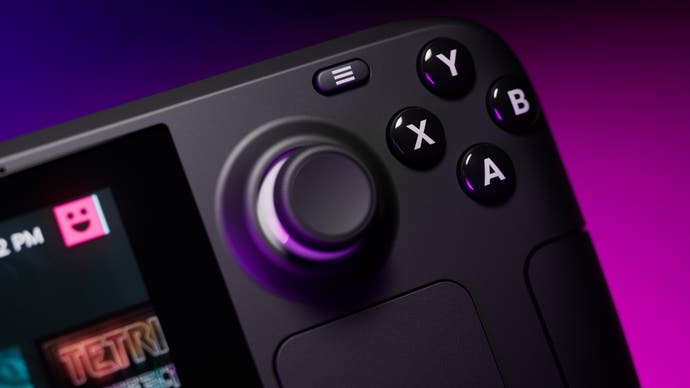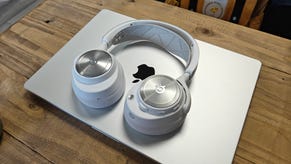No Steam Deck performance upgrade "in the next couple of years" says Valve
Current model a "pretty sweet spot".
Valve has once again dropkicked the dreams right out of anyone hoping a whizzier, more powerful Steam Deck might be happening soon; it's now provided a clearer timeframe for what it considers to be the current Steam Deck's minimum life span, saying not to expect any kind of performance upgrade "in the next couple of years".
Valve has, of course, tempered expectations for a souped-up Steam Deck sequel previously; in December, Deck designer Pierre-Loup Griffais said the company would likely keep a single performance spec, ie. the current one, for its handheld gaming PC "a little bit longer", noting any initial hardware improvements would probably focus on screen and battery capacity.
But now, speaking to The Verge, Griffais has indicated that "little bit" will likely be a lot longer, and that any Steam Deck performance upgrades are still some considerable way off. "It's important to us that the Deck offers a fixed performance target for developers," he explained, "and that the message to customers is simple, where every Deck can play the same games."
"As such," he added, "changing the performance level is not something we are taking lightly, and we only want to do so when there is a significant enough increase to be had. We also don't want more performance to come at a significant cost to power efficiency and battery life."
But while Griffais says he doesn't "anticipate such a leap to be possible in the next couple of years", Valve definitely has an eye to the future of the machine. "We're still closely monitoring innovations in architectures and fabrication processes to see where things are going there."
In a separate interview with CNBC, Griffais shared a similar sentiment, saying Valve considers Steam Deck's current performance to be a "stable target for a couple of years."
"We think that it's a pretty sweet spot in terms of being able to play all the experiences from this new generation," he continued, "and so far, the new releases coming out have been great experiences on Steam Deck." Griffais added that Valve continues to work with developers and to monitor feedback, but said, "So far, I think it has been pretty good on the horsepower front."
While a proper Steam Deck 2 may still be some way off, things are heating up in the handheld gaming PC market following the success of Valve's debut machine. We've already seen ASUS join the fray with the Windows 11-powered ROG Ally, with much of its marketing focusing on the machine's increased horsepower compared to Steam Deck, while the recently announced Lenovo Legion Go is looking to go all out on the mod-cons, offering the likes of detachable Switch-style controllers and a QHD+ IPS display when it arrives in October.






.png?width=291&height=164&fit=crop&quality=80&format=jpg&auto=webp)



